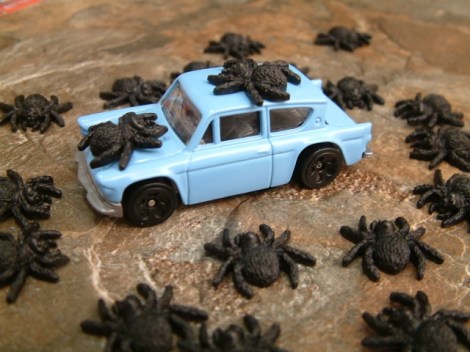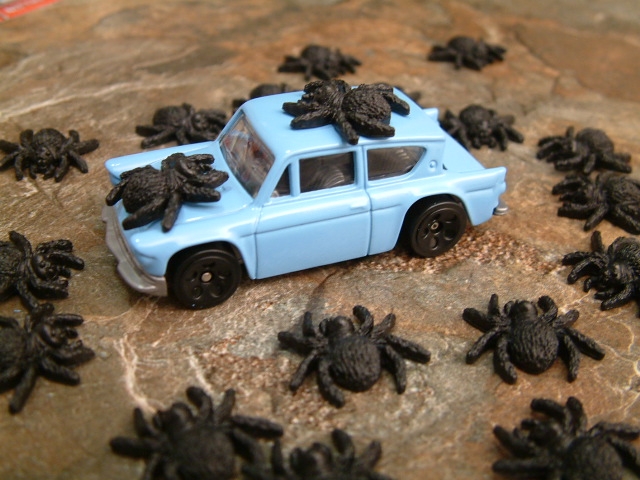
This is my attempt to illustrate this story without utterly traumatizing anyone. (Photo courtesy of Hollywood Diecast.)
The island of Guam has up to 40 times the normal number of spiders — on average, about one spiderweb every two feet during the rainy season. And if that’s not enough, it’s also infested with brown tree snakes. That’s not a coincidence. According to a study published in PLoS, Guam’s spider explosion comes from its lack of bug-eating birds, which in turn comes from its overabundance of the invasive snakes, which were introduced to the island in the 1940s.
On the one hand, this sucks for Guam — they’ve lost 10 of 12 native bird species, and all they got in return is snakes and spiders. It’s like the middle of a Disney movie, before the hero arrives to scare off the witch. On the other hand, it’s good news for the scientists, who at least get to use the island as a large-scale living experiment in what happens when birds disappear. Instead of controlling the bird population in specially built enclosures, the scientists can observe Guam’s bird-free ecosystem and contrast it with the natural ecosystems of other islands.
And they can use that to figure out whether we’ll be totally screwed if we keep letting birds die off, either from invasive species or poaching or climate change. The answer so far looks like yes, at least if you consider “covered in spiders” to be a subset of “screwed.”



